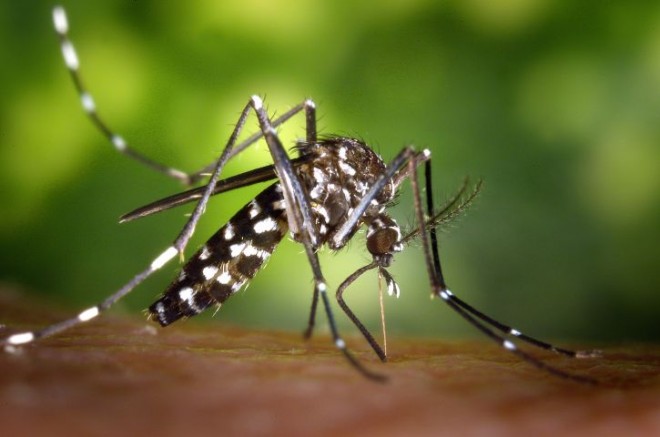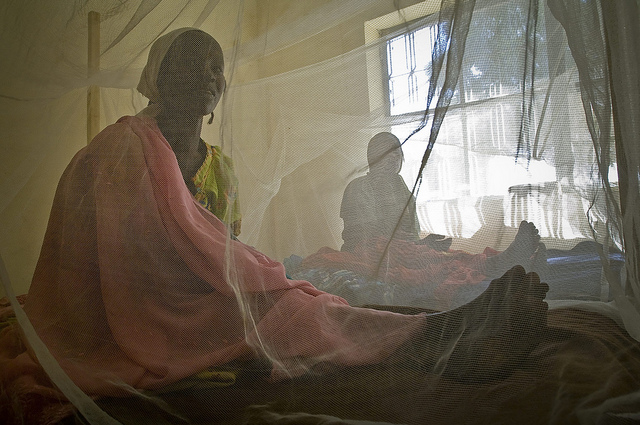If you’ve been reading the news lately, you’ve likely heard the word “Zika” come up multiple (if not countless) times. And as a person who’s interested in more than just the goings on in her own backyard, you might have the opportunity to travel where Zika virus is.
What you probably want to know now is: Should I take that opportunity?
What is Zika virus?
The first isolated case of Zika virus was from a rhesus macaque monkey in the Zika Forest of Uganda in 1947. Since then it has been studied and found to be transmitted, like many terrible things in life, by the mosquito — more specifically Aedes mosquitoes, which like to bite humans as well as monkeys.
In general, it’s not a particularly harmful virus. Up until recently, it was known to cause only fairly mild symptoms.
What are the symptoms?
The symptoms of Zika virus are so mild that many people don’t even exhibit them.
If they do, however, they’ll experience:
- Rash
- Joint pain
- Fever
- Conjunctivitis
The virus only remains in the blood of an infected person for a few days to a week, which is also how long symptoms typically last.
More recently, some people have suggested a link between Zika virus and microcephaly and Guillain-Barré syndrome.
Check out this video of Erika Garcia, an epidemiologist for WHO, speaking on Zika virus:
[youtube http://www.youtube.com/watch?v=iOm15VyWlwo]
Why is Zika virus such a big deal?
Zika virus has been a risk to travelers for quite a while. If you’re traveling to a location with mosquitoes, you need to be aware of the viruses (like this one) that they carry and how to protect yourself from them.
So if this is just another mosquito-borne illness, why so much chatter about it?
The chatter is mostly due to a possible connection between Zika virus and birth defects and neurological problems.
Brazil recently reported cases of microcephaly in babies who were born to mothers infected with the virus while they were pregnant. An official link between Zika virus and microcephaly has not been confirmed; but on February 1 the World Health Organization (WHO) announced a public health emergency because of the increase of microcephaly and Guillain-Barré syndrome in the Americas.
Microcephaly is a danger because it causes the circumference of a person’s head to be smaller than normal because of improper or halted brain development.
While some children with microcephaly have heads that grow and experience normal intelligence, microcephaly is most often connected to
…impaired cognitive development, delayed motor functions and speech, facial distortions, dwarfism or short stature, hyperactivity, seizures, difficulties with coordination and balance, and other brain or neurological abnormalities.
Guillain-Barré syndrome is rare, and little is known about why some people suffer from it and others don’t. If someone does have it, their immune system attacks their nervous system. They’ll experience symptoms like tingling and weakness in their legs that can spread to their arms and upper body. Sometimes these symptoms become so intense that the person can’t use their muscles.
However, according to the National Institute of Neurological Disorders and Stroke,
Most individuals…have good recovery from even the most severe cases of Guillain-Barré syndrome (GBS)…
Are there certain places I should be concerned about?

We’re not the experts who can tell you where you should or shouldn’t travel, but we can tell you that it’s important to heed the recommendations of your respective country whenever you’re thinking of traveling to a place with a health issue — or any other kind of safety issue or emergency. It’s also just generally a good idea to stay abreast of world goings-on!
That being said, before 2015, Zika virus was mainly found in Southeast Asia, the Pacific Islands, and Africa; however, as noted above, WHO named Zika virus a public health emergency.
There have been no locally transmitted Zika cases in the continental U.S., but there have been cases in returning travelers and in Puerto Rico, the Virgin Islands, and America Samoa.
The Centers for Disease Control and Prevention (CDC), an organization connected to the United States, has issued travel notices for several locations. These are Alert Level 2, which means the CDC advises you to “Practice Enhanced Precautions.”
- Cape Verde
- Pacific Islands
- South America
- Central America
- Caribbean
- Mexico
For a full list of places the CDC has identified with active transmission, go here.
Is there a vaccine I can get?
Unfortunately, there is no vaccine to prevent Zika virus. There’s also no specific treatment beyond the treatment of symptoms, like taking medicine for headache and joint pain.
There are things you can do to prevent being infected, though! For one, protect yourself from mosquitoes and the illnesses they carry.
How to Protect Yourself from Mosquitoes
Our partner Global Rescue released some really useful information on this from their Medical Operations team. In addition to providing rescue missions and membership options to keep you safe on the road, Global Rescue keeps travelers up-to-date on situations just like this one that are happening worldwide.
According to Global Rescue, “Prevention techniques may include:
- “Using insect repellents containing either DEET, picaridin, IR3535, or certain oil of lemon-eucalyptus or para-menthane-diol products.
- “Application of sunscreen first and then insect repellent. (Always follow the label instructions when using insect repellent or sunscreen.)
- “Treating clothing with permethrin or purchase permethrin-treated clothing.
- “When weather permits, wear long-sleeved shirts and long pants.
- “Use air-conditioning, and window/door screens to keep mosquitoes outside. If you are not able to protect yourself from mosquitoes inside your local accommodations, sleep under a mosquito bed net.
- “Reduce the number of mosquitoes inside and outside by emptying standing water from containers, such as flowerpots or buckets.”

We’d also add:
- Avoid times of day or places that mosquitoes are particularly fond of.
- This can vary from place to place and from time to time, so keep an open dialogue with any locals, officials, and guides you meet.
- Disposing of standing water is important because it’s where mosquitoes lay their eggs. And it includes something as small as your water bottle! Also, be mindful of standing water like puddles around or in your accommodations, and do your best to avoid them, or alert someone to their risk.
- You may not have a bed net — after all, it’s not a piece of equipment that’s required in many places. If you’re going somewhere that considers mosquitoes a problem, call ahead to your accommodations to see if they provide bed nets. And, remember, if your bed net doesn’t touch the floor, tuck it into your mattress.
For comprehensive info about protecting yourself, check out the CDC’s recommendations.
There has been some documentation to support that Zika virus can be transmitted sexually from a male partner. One way to protect yourself is to correctly use condoms if you engage in sex with a male partner who has traveled to an affected area or to avoid having sex with a male who has traveled to those areas, especially if you are pregnant.
Am I more at risk because I’m a woman?
No! You’re just as likely as anyone to be bitten by a mosquito that’s carrying Zika virus. Your chances may rise depending on where in the world you are and how well you’re protecting yourself against the virus, but so would any man’s.
Because of the possible link between Zika virus and birth defects, however, Zika virus could affect women in a unique way.
The CDC has specific recommendations for women who are pregnant, trying to become pregnant, or even thinking about becoming pregnant:
- “Pregnant women in any trimester should consider postponing travel to the areas where Zika virus transmission is ongoing. Pregnant women who do travel to one of these areas should talk to their doctor or other healthcare provider first and strictly follow steps to avoid mosquito bites during the trip.
- “Women trying to become pregnant or who are thinking about becoming pregnant should consult with their healthcare provider before traveling to these areas and strictly follow steps to prevent mosquito bites during the trip.”

Contracting Zika virus is a scary prospect, but it’s important to note that more is still being learned about it, and the world is making an effort to solve it. It’s also important to note that a lot of prospects are pretty scary when we’re traveling. Information, preparation, and conscientiousness can go a long way towards helping you make smart decisions and stay protected wherever you venture!
Featured image by Pixabay user RyanMcGuire.














































